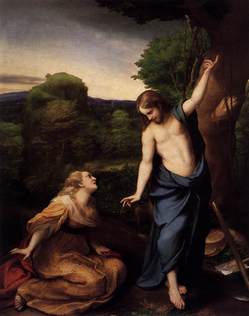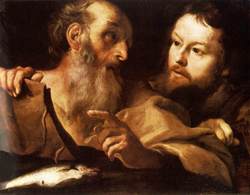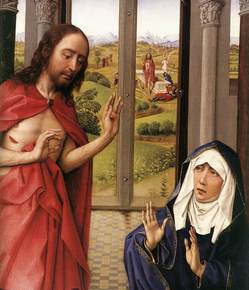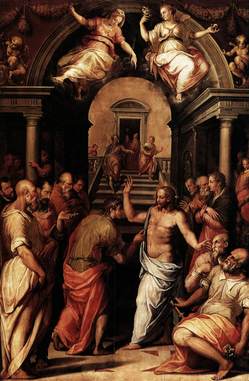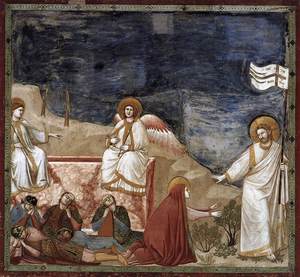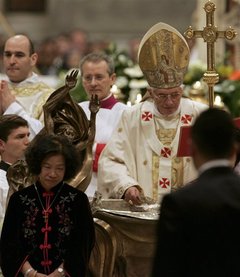 These are the
lambs, newly-baptized,
These are the
lambs, newly-baptized,
who proclaimed the
glad tidings: Alleluia! recently come to
the waters, and full of God's
light and splendor. Alleluia! Alleluia!
Lady, Queen, whom
grace from heaven, Has preferred to
all on earth, Now renewed, the
world is brightened, By your holy
virgin-birth.
Oh, how lovely and
how wondrous, Is the cure that
saved us all: Jesus, in His love,
becomes now, Victim for His people's
fall!
Now renewed through
holy washing, In the font of our
rebirth, Soon the chrism's
oil and fragrance, Will give strength
to us on earth!
To each Christian
now is given, Christ's own Flesh
as Bread of Life. Christ's own Blood
becomes the sweetest, Source of joy in all our strife!
Easter week brings so many joys, graces and consolations. One such joy, grace and consolation that I've been thinking and praying about all week during Mass and praying the Divine Office, is the is new life in Christ that those received into the Church at the Easter Vigil and on Easter Sunday. The gift of salvation given to us is has once again been given to other called not by human concern but by the Holy Spirit. The Neophytes --the newly-initiated Christians who were baptized and confirmed and communicated-- live differently now that the doors of our God-given destiny has been received. Musically we can think of the chant text given above, "Isti sunt Agni novelli," taken from the Cistercian collection Laudes Vespertine (Westmalle, Belgium, 1939) which gives a keen insight into this beautiful mystery of faith. May Christ shower His blessing on all of us!
